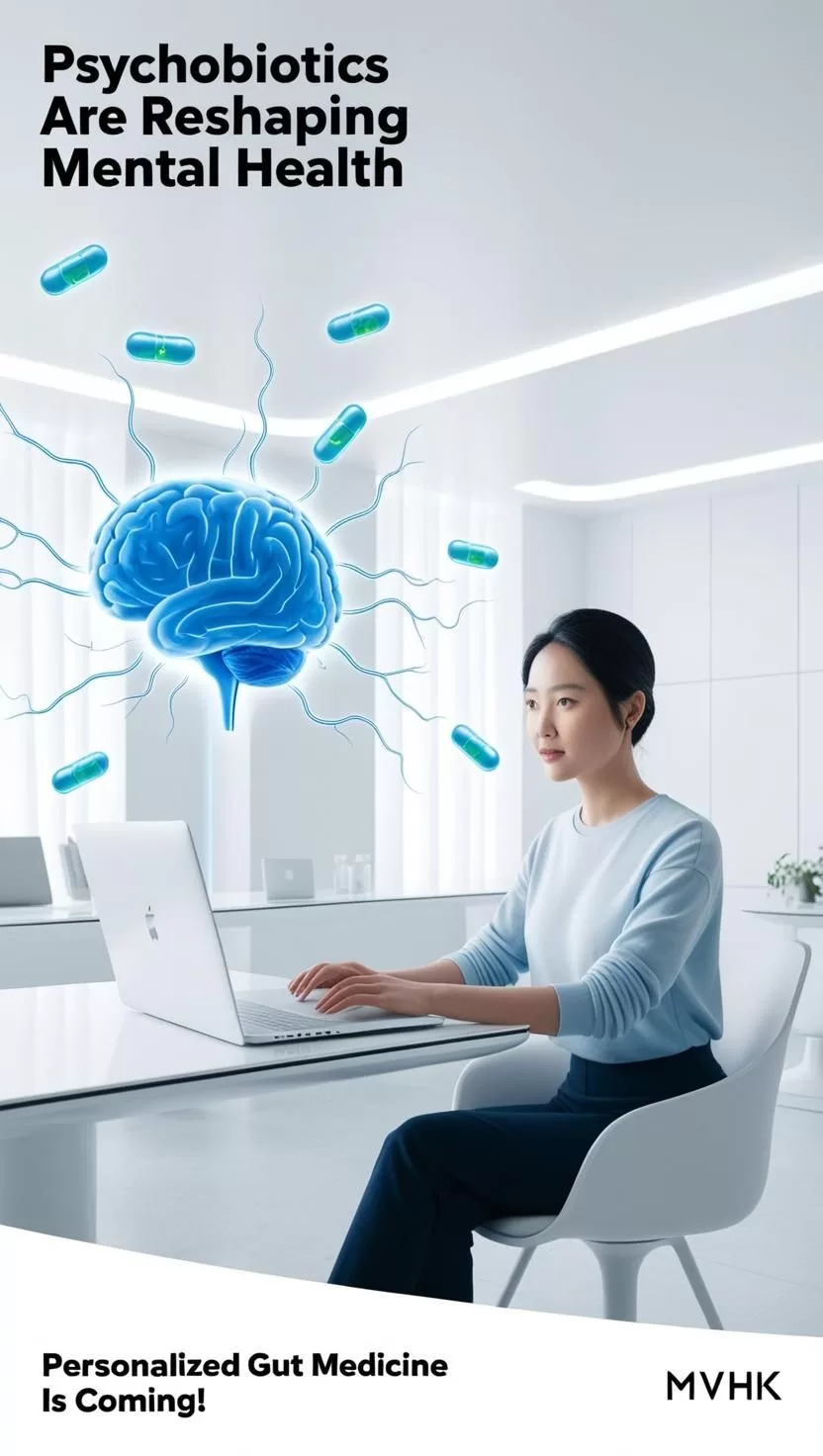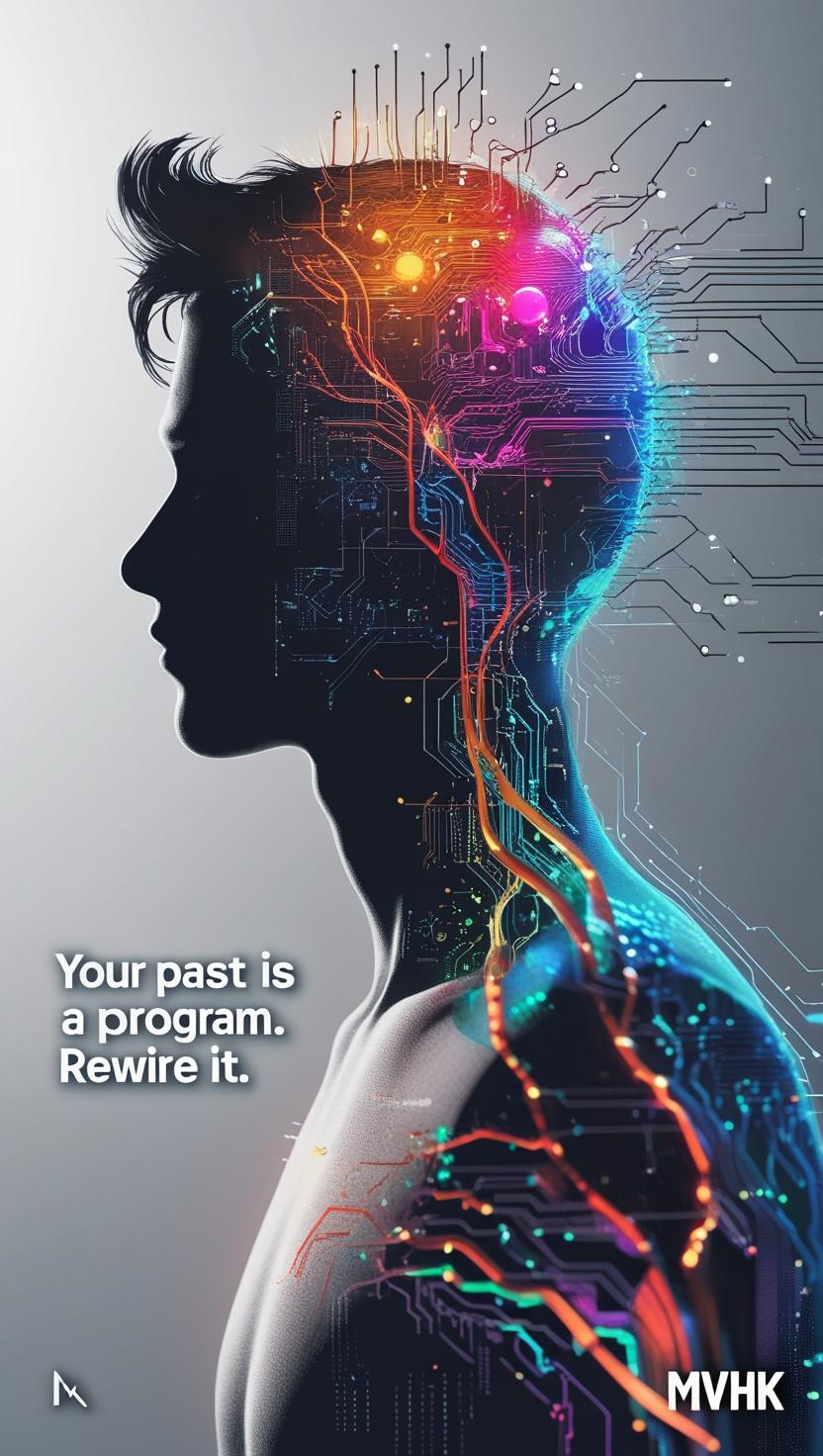Psychobiotics Are Reshaping Mental Health – Here’s How Your Gut Could Beat Depression
The connection between your gut and brain might just be the key to the future of mental health. The emerging field of psychobiotics – probiotics specifically engineered to improve brain function and mental wellness – is revolutionizing how we view anxiety, depression, and even resilience to stress.
With the gut-brain axis under intense scientific scrutiny, researchers are unlocking groundbreaking methods for personalized medicine, offering hope to millions struggling with mental health conditions.
Let’s dive into how psychobiotics work, what the latest studies say, and how you might soon be treating your mind by caring for your gut.
1️⃣ What Are Psychobiotics and How Do They Work?
Subtopic 1: The Science of the Gut-Brain Axis
The gut and brain communicate constantly via the vagus nerve, immune signaling, and microbial metabolites. When your gut microbiota is imbalanced (dysbiosis), it can trigger inflammatory responses and alter neurotransmitter levels like serotonin (5-HT), directly affecting mood and cognition.
Psychobiotics are specific strains of bacteria that:
- Improve gut barrier integrity
- Reduce systemic inflammation
- Modulate neurotransmitter production
- Enhance BDNF (Brain-Derived Neurotrophic Factor), crucial for neuroplasticity
According to a 2020 study in Frontiers in Neuroscience, psychobiotics can influence serotonin pathways and even promote neurogenesis. [source]
Subtopic 2: Why the Future of Mental Health Is Personalized
Not all guts are the same. Emerging diagnostics allow personalized microbiome profiles, enabling doctors to recommend targeted psychobiotic therapies. This precision approach could mean fewer side effects compared to traditional antidepressants and anti-anxiety drugs.
2️⃣ Latest Scientific Findings on Psychobiotics and Mental Health
Subtopic 1: Clinical Trials That Are Changing Minds
- A 2019 randomized clinical trial showed Lactobacillus rhamnosus reduced anxiety symptoms by 40% in just four weeks.
- Another 2021 study revealed that multi-strain psychobiotics lowered depression scores comparable to SSRI medication, but without the typical side effects.
These findings support the concept that psychobiotics are not just supplements, but active, targeted treatments.
Subtopic 2: Neuroprotective and Anti-Inflammatory Benefits
Besides mood improvement, psychobiotics promote:
- Anti-inflammatory cytokine release
- Reduction in oxidative stress
- Strengthening of the blood-brain barrier
This holistic support of brain health might even reduce the risk of neurodegenerative diseases like Alzheimer’s and Parkinson’s.
3️⃣ How to Start Supporting Your Gut-Brain Connection Now
Subtopic 1: Foods That Act Like Natural Psychobiotics
While research advances, you can already enhance your gut-brain axis with:
- Fermented foods (kimchi, sauerkraut, yogurt)
- Prebiotic-rich foods (onions, garlic, asparagus)
- Omega-3 fatty acids (salmon, walnuts)
- Polyphenols (green tea, berries, cocoa)
Subtopic 2: Choosing the Right Supplement
Look for probiotic supplements containing strains like Lactobacillus helveticus, Bifidobacterium longum, and Lactobacillus rhamnosus GG. Always check for clinical validation and third-party testing.
Conclusion: How to Get Started Today
Personalized psychobiotic therapy might soon become as common as taking a daily vitamin. But even today, you can begin supporting your mental health by nurturing your gut microbiome. Small dietary changes, mindfulness about gut health, and staying informed about psychobiotic research could give you a powerful edge against anxiety and depression.
- Frontiers in Neuroscience Psychobiotics Study (open in new window)
- Harvard Health on Gut-Brain Axis (open in new window)
FAQ Section:
FAQ
What are psychobiotics?
Psychobiotics are probiotics that specifically target the gut-brain axis to improve mental health.
Can psychobiotics replace antidepressants?
Emerging research shows psychobiotics could significantly reduce depression symptoms, but they may complement rather than fully replace traditional medications for now.
How soon can we expect personalized psychobiotic treatments?
Clinical trials are ongoing, and experts predict personalized gut therapies could become mainstream within the next 5–10 years.






